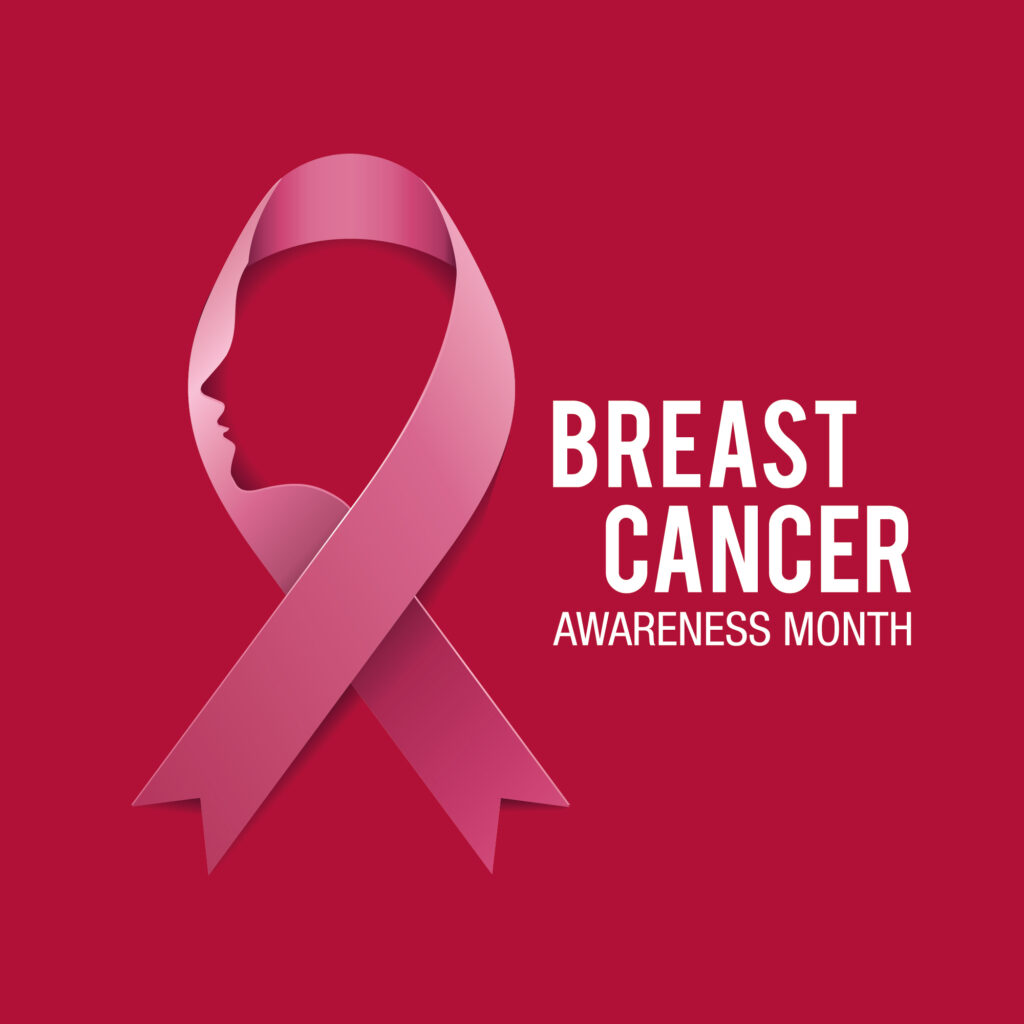Skin Deep: Connecting Dermatology and Breast Cancer Awareness Month”

Breast Cancer Awareness Month is a time when individuals worldwide unite to raise awareness about breast cancer and support those affected by this disease. While breast cancer primarily affects the mammary glands, did you know that dermatology plays a significant role in its detection and management? Let’s explore the intricate connection between dermatology and breast cancer and highlight the importance of skin examinations during Breast Cancer Awareness Month.
The Dermatological Connection:
Skin Changes: Breast cancer can sometimes manifest with skin changes that are noticeable to the naked eye. These changes can include redness, warmth, dimpling, or a rash on the breast skin. Dermatologists are trained to recognize these subtle signs during skin examinations.
Metastasis: Breast cancer can spread to the skin, causing secondary skin lesions or tumors. Dermatologists are skilled in identifying and diagnosing these skin metastases, which are essential for staging and treatment planning.
Lymph Node Involvement: The lymph nodes in the axillary (underarm) area can be affected by breast cancer. Dermatologists may assess the lymph nodes in this region, looking for signs of enlargement or abnormalities that could indicate breast cancer spread.
Radiation Therapy Effects: Many breast cancer patients undergo radiation therapy, which can have various dermatological side effects, including skin irritation, redness, and changes in pigmentation. Dermatologists can provide guidance on managing these side effects to ensure patients’ comfort and well-being.
Early Detection and Prevention:
Early detection is paramount in successfully treating breast cancer. Dermatologists can contribute to early detection through regular skin examinations. Here’s how you can participate in breast cancer awareness through dermatology:
Self-Examinations: Encourage women to perform regular breast self-examinations, including checking the breast skin for any unusual changes or signs of breast cancer. Dermatologists can provide guidance on how to perform these examinations effectively.
Clinical Skin Examinations: Schedule regular check-ups with a dermatologist to have a professional evaluate your skin for any suspicious changes or lesions.
Education: Dermatologists can play a vital role in educating the public about breast cancer awareness, its signs, and the importance of early detection.
During Breast Cancer Awareness Month, consider supporting the cause by:
Wearing Pink: Pink is the color symbolizing breast cancer awareness. Wear pink clothing or accessories to show your support.
Donating: Contribute to breast cancer research and support organizations that provide resources and assistance to breast cancer patients and their families.
Sharing Knowledge: Spread awareness by sharing information about breast cancer and the role of dermatology in early detection on social media and within your community.
Breast Cancer Awareness Month is an opportune time to reflect on the profound connection between dermatology and breast cancer. Dermatologists play a vital role in early detection, management, and support for breast cancer patients. By raising awareness and promoting regular skin examinations, we can collectively work towards a world where breast cancer is detected early and treated effectively, ultimately saving lives. Let us join hands, don our pink ribbons, and shine a light on the crucial intersection of dermatology and breast cancer awareness.
